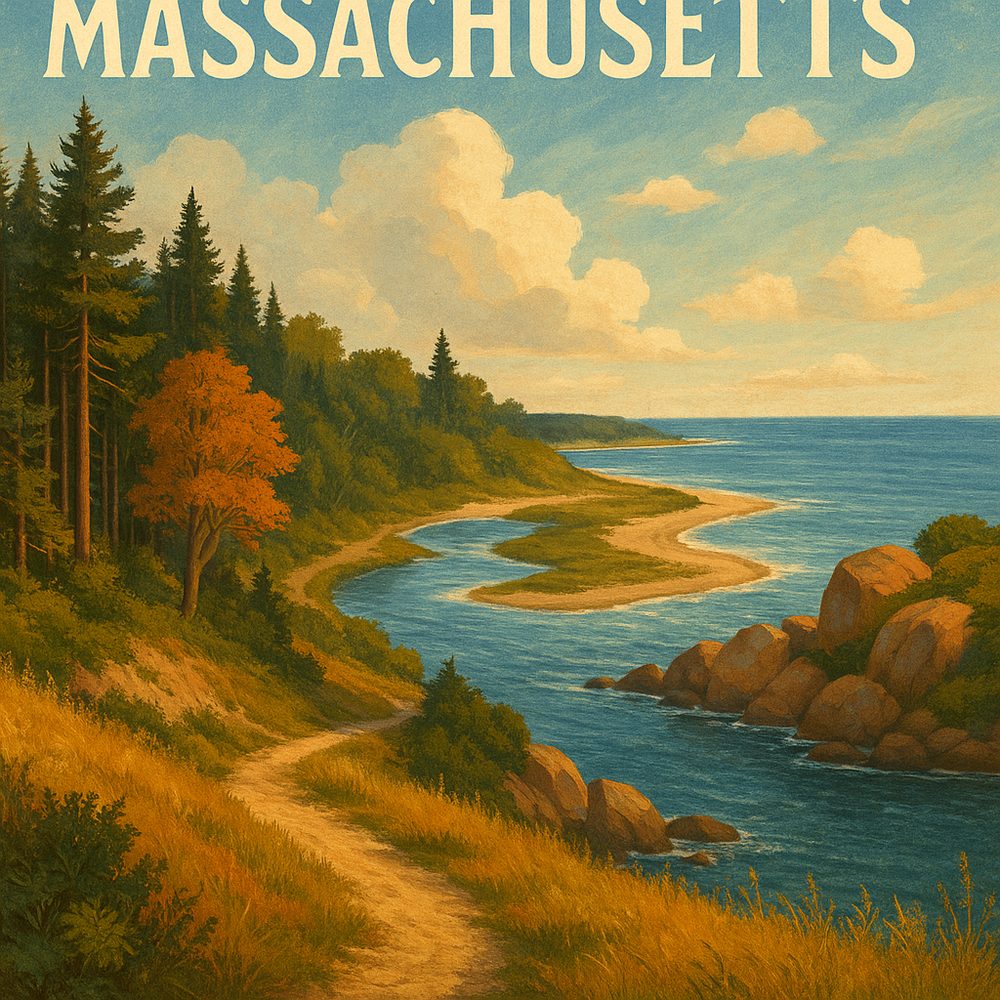Weird Laws Still on the Books in Massachusetts

Outside the bustling streets of Boston, about a 20-minute drive from the city center, lies the Massachusetts State House, an emblem of colonial history perched on Beacon Hill. This golden-domed building isn’t just a seat of government; it’s a place where Massachusetts’ long legacy of laws—some downright quirky—has been forged. Visitors can take guided tours to see the historic chambers where debates have shaped everything from education to peculiar local regulations. For example, wandering the halls here, it’s intriguing to imagine the old statute still on the books forbidding the use of profanity on the State House steps—something that feels charmingly anachronistic against the backdrop of today’s political hustle. The best time to visit is during the spring or fall when the sunlight filters through the historic windows, illuminating the ornate woodwork and reminding visitors that every law has roots in a particular place and time.
A short drive west from Worcester, in the quaint town of Brookfield, you’ll find the Brookfield Rod and Gun Club, a classic New England gathering spot surrounded by dense woods and shimmering ponds. This rustic location is more than a sporting club; it’s a reminder of Massachusetts’ detailed hunting and fishing regulations, some dating back decades. Among the odd laws tied to this region is one forbidding the hunting of certain game on Sundays—a rule that harks back to Puritanical observances still echoed in local ordinances. Visitors here can enjoy a peaceful hike along the Quinebaug River Trail, which offers gentle terrain over six miles, or spend a quiet afternoon fishing in the club’s stocked ponds. Early autumn is ideal for witnessing the fiery foliage while reflecting on how tradition and law intersect in places where nature and community meet.
Head east to Salem, just 30 minutes north of Boston, and you arrive in the city famous for its witch trials and storied past. Salem’s Witch House, the only structure still standing with direct ties to the 1692 trials, encapsulates the blend of history and law that’s uniquely Massachusetts. Inside, exhibits detail how superstition once informed legal decisions, and visitors can explore the home’s original beams and period furnishings. A fascinating local law still in effect prohibits witches from practicing their craft within city limits, a rule more symbolic than enforceable but one that adds a whimsical layer to the town’s cultural fabric. Salem’s cobblestone streets and maritime museums make it perfect for a fall visit, especially as the city embraces its spooky heritage with atmospheric fog and seasonal events.
In the Berkshire region, about two hours west of Springfield, the town of Stockbridge features the Norman Rockwell Museum, home to an extensive collection of the artist’s work. Rockwell’s paintings often depict small-town Americana, capturing the quirks and charm of everyday life, much like some of the state’s enduring odd laws. For instance, the nearby village of Lenox was once known for prohibiting loud noises on Sundays, reflecting an old sense of Sabbath observance that lingers in local customs. At the museum, visitors can stroll the galleries showcasing Rockwell’s vivid portrayals of Massachusetts life, then wander through the tranquil gardens designed to complement the art’s nostalgic feel. Summer afternoons here are serene, with the Berkshires’ rolling hills providing a lush backdrop to the artist’s distinctly New England scenes.
Travel to the North Shore and explore Ipswich, a historic coastal town about 28 miles northeast of Boston, known for its well-preserved Colonial architecture and scenic Marshlands. This area is notable for its longstanding fishing laws, including some that regulate when and how clams can be harvested—a practice rooted in centuries-old statutes meant to preserve the local ecosystem. Walking along the Crane Beach Trail, a gentle 2.5-mile loop, visitors can enjoy sweeping views of the Atlantic and spot migratory birds in the salt marshes. The interplay of law and nature here is palpable, reflecting how legislation shaped the town’s maritime heritage. Late spring, when the wildflowers bloom and birdwatching is at its peak, offers the best chance to experience Ipswich’s unique coastal charm.
In the heart of the Pioneer Valley, Amherst sits about 90 miles west of Boston and serves as a hub of progressive thought and academic life. Amherst College’s Mead Art Museum offers a window into social history through its collections, including artifacts and documents that highlight Massachusetts’ evolving legal landscape. Among these are references to once-enforced laws regulating education, voting rights, and local behaviors that seem peculiar today—like a ban on certain public dances that lingered into the 20th century. Walking through the museum’s galleries and then strolling along the campus’s tree-lined paths, visitors get a sense of how laws have shaped cultural norms. The best time to visit is during early fall when the college campus bursts with color, blending intellectual curiosity with the beauty of New England’s changing seasons.
Finally, journey to Martha’s Vineyard, a 45-minute ferry ride south of Cape Cod’s Hyannis. This island getaway is famed for its beaches and quaint towns like Edgartown and Oak Bluffs, but it also holds onto some unusual local ordinances. For example, there are rules limiting the use of motorized vehicles on certain parts of the island to preserve its tranquility and environment. Visitors can bike or walk the scenic paths like the Manuel F. Correllus State Forest trails, a 7,000-acre expanse ideal for hiking and birdwatching. Summer mornings are particularly magical here, with soft seaside breezes and the scent of pine mingling with salt air. Experiencing how such laws protect the island’s peaceful character offers a unique lens into how Massachusetts balances tradition, nature, and tourism.